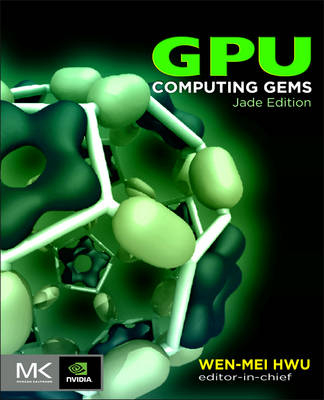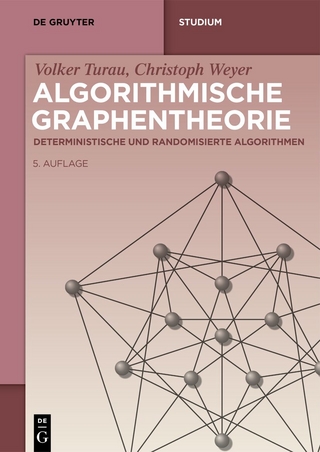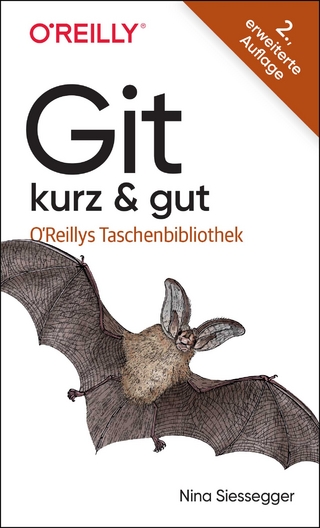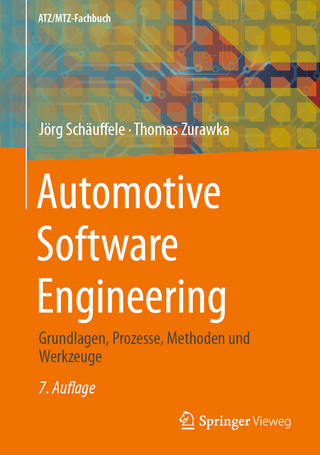
GPU Computing Gems Jade Edition
Morgan Kaufmann Publishers In (Verlag)
978-0-12-385963-1 (ISBN)
GPU Computing Gems, Jade Edition, offers hands-on, proven techniques for general purpose GPU programming based on the successful application experiences of leading researchers and developers. One of few resources available that distills the best practices of the community of CUDA programmers, this second edition contains 100% new material of interest across industry, including finance, medicine, imaging, engineering, gaming, environmental science, and green computing. It covers new tools and frameworks for productive GPU computing application development and provides immediate benefit to researchers developing improved programming environments for GPUs.
Divided into five sections, this book explains how GPU execution is achieved with algorithm implementation techniques and approaches to data structure layout. More specifically, it considers three general requirements: high level of parallelism, coherent memory access by threads within warps, and coherent control flow within warps. Chapters explore topics such as accelerating database searches; how to leverage the Fermi GPU architecture to further accelerate prefix operations; and GPU implementation of hash tables. There are also discussions on the state of GPU computing in interactive physics and artificial intelligence; programming tools and techniques for GPU computing; and the edge and node parallelism approach for computing graph centrality metrics. In addition, the book proposes an alternative approach that balances computation regardless of node degree variance.
Software engineers, programmers, hardware engineers, and advanced students will find this book extremely usefull. For useful source codes discussed throughout the book, the editors invite readers to the following website:
Wen-mei W. Hwu is a Professor and holds the Sanders-AMD Endowed Chair in the Department of Electrical and Computer Engineering, University of Illinois at Urbana-Champaign. His research interests are in the area of architecture, implementation, compilation, and algorithms for parallel computing. He is the chief scientist of Parallel Computing Institute and director of the IMPACT research group (www.impact.crhc.illinois.edu). He is a co-founder and CTO of MulticoreWare. For his contributions in research and teaching, he received the ACM SigArch Maurice Wilkes Award, the ACM Grace Murray Hopper Award, the Tau Beta Pi Daniel C. Drucker Eminent Faculty Award, the ISCA Influential Paper Award, the IEEE Computer Society B. R. Rau Award and the Distinguished Alumni Award in Computer Science of the University of California, Berkeley. He is a fellow of IEEE and ACM. He directs the UIUC CUDA Center of Excellence and serves as one of the principal investigators of the NSF Blue Waters Petascale computer project. Dr. Hwu received his Ph.D. degree in Computer Science from the University of California, Berkeley.
Part 1: Parallel Algorithms and Data Structures – Paulius Micikevicius, NVIDIA
1 Large-Scale GPU Search
2 Edge v. Node Parallelism for Graph Centrality Metrics
3 Optimizing parallel prefix operations for the Fermi architecture
4 Building an Efficient Hash Table on the GPU
5 An Efficient CUDA Algorithm for the Maximum Network Flow Problem
6 On Improved Memory Access Patterns for Cellular Automata Using CUDA
7 Fast Minimum Spanning Tree Computation on Large Graphs
8 Fast in-place sorting with CUDA based on bitonic sort
Part 2: Numerical Algorithms – Frank Jargstorff, NVIDIA
9 Interval Arithmetic in CUDA
10 Approximating the erfinv Function
11 A Hybrid Method for Solving Tridiagonal Systems on the GPU
12 LU Decomposition in CULA
13 GPU Accelerated Derivative-free Optimization
Part 3: Engineering Simulation – Peng Wang, NVIDIA
14 Large-scale gas turbine simulations on GPU clusters
15 GPU acceleration of rarefied gas dynamic simulations
16 Assembly of Finite Element Methods on Graphics Processors
17 CUDA implementation of Vertex-Centered, Finite Volume CFD methods on Unstructured Grids with Flow Control Applications
18 Solving Wave Equations on Unstructured Geometries
19 Fast electromagnetic integral equation solvers on graphics processing units (GPUs)
Part 4: Interactive Physics for Games and Engineering Simulation – Richard Tonge, NVIDIA
20 Solving Large Multi-Body Dynamics Problems on the GPU
21 Implicit FEM Solver in CUDA
22 Real-time Adaptive GPU multi-agent path planning
Part 5: Computational Finance – Thomas Bradley, NVIDIA
23 High performance finite difference PDE solvers on GPUs for financial option pricing
24 Identifying and Mitigating Credit Risk using Large-scale Economic Capital Simulations
25 Financial Market Value-at-Risk Estimation using the Monte Carlo Method
Part 6: Programming Tools and Techniques – Cliff Wooley, NVIDIA
26 Thrust: A Productivity-Oriented Library for CUDA
27 GPU Scripting and Code Generation with PyCUDA
28 Jacket: GPU Powered MATLAB Acceleration
29 Accelerating Development and Execution Speed with Just In Time GPU Code Generation
30 GPU Application Development, Debugging, and Performance Tuning with GPU Ocelot
31 Abstraction for AoS and SoA Layout in C++
32 Processing Device Arrays with C++ Metaprogramming
33 GPU Metaprogramming: A Case Study in Biologically-Inspired Machine Vision
34 A Hybridization Methodology for High-Performance Linear Algebra Software for GPUs
35 Dynamic Load Balancing using Work-Stealing
36 Applying software-managed caching and CPU/GPU task scheduling for accelerating dynamic workloads
| Erscheint lt. Verlag | 2.11.2011 |
|---|---|
| Reihe/Serie | Applications of GPU Computing Series |
| Mitarbeit |
Chef-Herausgeber: Wen-Mei W. Hwu |
| Verlagsort | San Francisco |
| Sprache | englisch |
| Maße | 191 x 235 mm |
| Gewicht | 1340 g |
| Themenwelt | Mathematik / Informatik ► Informatik ► Software Entwicklung |
| Mathematik / Informatik ► Informatik ► Theorie / Studium | |
| ISBN-10 | 0-12-385963-8 / 0123859638 |
| ISBN-13 | 978-0-12-385963-1 / 9780123859631 |
| Zustand | Neuware |
| Haben Sie eine Frage zum Produkt? |
aus dem Bereich


